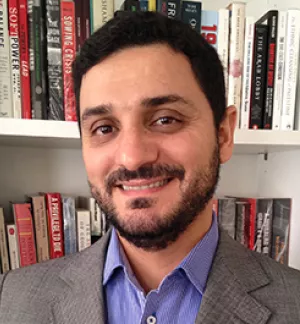Implications of the Iran Nuclear Deal on Israeli Security
Introduction
by Payam Mohseni
Standing before the United States Congress early in March 2015, in the face of a looming deadline in the Iran and P5+1 talks over the Iranian nuclear program, Israeli Prime Minister Benjamin Netanyahu portrayed the negotiations in stark terms. Drawing a direct parallel between biblical plots to persecute Jews in pre-Islamic Persia and modern Iran’s nuclear program, Netanyahu framed Iran as nothing less than an existential threat to Israel. Anything short of a practical dismantling of Iranian nuclear infrastructure would be unacceptable. Largely perceived as an attempt to undermine President Barack Obama’s efforts to reach a negotiated settlement with Iran, Netanyahu’s actions thus proved quite contentious inside the United States.
The Prime Minister’s speech, however, proved just as divisive inside Israel as in America. For some Israelis, Netanyahu’s aggressive denunciations of President Obama’s negotiation policies threatened to weaken the alliance and trust between the two countries. As the Israeli President, Reuven Rivlin, stated: “The prime minister has waged a campaign against the United States as if the two sides were equal, and this is liable to hurt Israel.” Nearly 200 top retired Israeli security officials echoed Rivlin’s statements in a warning against Netanyahu’s campaign. Others, however, welcomed Netanyahu’s approach as they believed that Israel needed to demonstrate more strength in order to minimize concessions granted to Iran and ensure a more complete dismantling of an indigenous Iranian nuclear program.
These clashing perspectives inside Israel in part reflect broader debates over not only the terms of the Joint Comprehensive Plan of Action (JCPOA) but also regarding larger Israeli strategy for dealing with Iran’s regional influence and power. This publication sheds light on these debates as well as the nature of Israeli security and foreign policy thinking in light of the recent agreement. Given the significant implications that the nuclear deal will have on Israel and its regional security environment, it is critical to directly assess these rapidly changing dynamics, particularly by engaging with the viewpoints of scholars and analysts inside Israel.
...
In Part II, the publication turns to a presentation of brief, yet strategic, viewpoints of the larger question of the impact of the Iranian nuclear agreement on Israeli politics and security. We asked fourteen expgalerts from Israel to respond to the following prompt in a manner of their own choosing:
(1) What are the implications of the nuclear agreement on Israeli domestic and foreign policy?
(2) How will the deal impact the regional security architecture?
List of Contributors:
Part I:
Payam Mohseni
Introduction:Implications of the Iran Deal on Israel
Hussein Kalout
The Dynamics of Hezbollah-Israel Mutual Deterrence and Reshaping the Rules of the Game
Daniel Sobelman
A Shifting Center of Gravity across Israel’s Northern Border
Part II:
Yaakov Amidror
After the Agreement—Israel’s Perspective
Ephraim Asculai
The Implications of the Iranian Nuclear Agreement for Israel
Oren Barak
After the Nuclear Deal with Iran: An Israeli-Iranian Accommodation?
Martin van Creveld
Iran and the Future of Regional Nuclear Politics
Ehud Eiran
Israel’s Response to the JCPOA
Chuck Freilich
Consequences of the JCPOA
Nimrod Goren
The Iran Deal and the Need for an Alternative Israeli Foreign Policy Paradigm
Ephraim Kam
The Nuclear Agreement with Iran: Significance for Israel
Yossi Kuperwasser
The Impact of the Nuclear Agreement on Israel’s Security
Emily B. Landau
How the Iran Deal Affects Israeli Politics and Security Thinking
Daniel Radovsky
Iran’s Inter-Connected Nuclear and Regional Policies: A Challenge and Opportunity for Israel
Gilad Raik
Sustaining the Cold War between Israel and Hezbollah after the Iranian Deal
Gerald M. Steinberg
The Impact of the Iran Nuclear Agreement on Israeli Politics and Security
Amos Yadlin
Coping with the JCPOA: Time for a US-Israeli Plan of Action
Download the full PDF:
“Tipping the Balance?.” Mohseni, Payam, ed. December 2015











